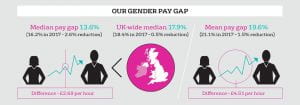This week, we were delighted to announce the award of over £100 million in grant funding for our new Digital Futures Institute, thanks to an initial £29 million from UKRI’s Research Partnership Investment Fund and a further £71 million in match funding from some 27 companies.
The Bristol Digital Futures Institute is a great opportunity for us – and for all universities – to look at research and innovation through a different lens. The late-20th-century model involves academia working with business and technology partners on tech-driven research projects; at Bristol, and indeed elsewhere, we have believed for some time that the rapid rise and pervasiveness of digital technologies has created challenges in terms of their impact and their disruptive nature in many areas of society.
A key word for this new institute is partnership. It will be jointly led by Susan Halford, a social scientist and Professor of Sociology, and Dimitra Simeonidou, an engineer and Professor of High-Performance Networks. The large number of projects (around 30) per year that we plan to initiate will bring together our researchers in science and engineering with their peers in the social sciences and in the legal, ethical and community sectors, to create programmes on a scale that, we believe, is quite unprecedented. As you’ll see from the formidable list of local partners who have pledged support – financial, logistical, advisory – the scale is matched by the range of sectors they represent.
There will, of course, be challenges. Some of our partners have never worked outside their own sector before, so there’ll be a process of learning and absorbing each other’s values, practices and metrics of success, in order to build a foundation for true collaboration and partnership. But it’s this confluence of different disciplines in a common cause, rather than the technology, that will drive the institute’s work, and I am confident that it will lead to transformational impact in this research domain.
Co-creating the future
The institute’s physical location at our new Temple Quarter Enterprise Campus is also highly appropriate to its mission and methodology. Research won’t be confined to the University lab or offices; it’ll involve people and platforms in real settings, and we will invite members of our local community, from across all socio-economic groups, to become co-creators of this exciting future.
This is what a civic university should be doing: not jealously guarding its experts and innovators, but opening its doors to the public and creating the space for two-way conversations and collaborative projects that will make a real impact on society at large
I’m tremendously excited about the prospects for this new institute and the groundswell of support that we’ve already received for it. We’ll work hard to fulfil those prospects, and I look forward to seeing them take shape – and to being surprised by the outcomes, which none of us can entirely predict at the start of this exciting journey.



